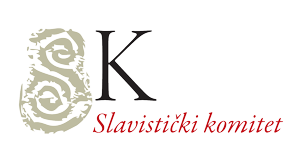The Founding Assembly of The Slavic Committee of Bosnia and Herzegovina was held on January 28th 2008 at the Faculty of Philosophy in Sarajevo. Dr. Senahid Halilović, a full professor at the Department of the Bosnian, Croatian and Serbian language, Faculty of Philosophy in Sarajevo, was elected the first president of the Association. The headquarters of The Slavic Committee is located in the building of the Faculty of Philosophy in Sarajevo.
I. The Slavic Committee’s objectives are:
• to develop and raise awareness of the cultural totality of Bosnia and Herzegovina and its position in respect to the world’s community of cultures;
• to raise awareness of Bosnia and Herzegovina as a unique cultural area;
• to explore and present all the fields of language, literature and culture of Bosnia and Herzegovina;
• to raise awareness of the linguistic significance of Bosnian and its role in society;
• to promote research in linguistics and literature;
• to carry out applied research and development research in the field of language and literature;
• to prepare scientific studies, analyses and projects;
• to set up and maintain the database for the purposes of scientific and research activities;
• to stimulate scientific and research activities in the field of Slavistics and linguistics in general;
• to produce and publish various scientific, specialist and other publications;
• to organize scientific and specialist gatherings;
• to promote peace and stability by means of scientific cooperation, debates, conferences, congresses and seminars;
• to provide direct and indirect help to students, teachers, language instructors, researchers and citizens in their scientific research in Bosnian studies and Slavistics;
• to establish cooperation with organizations and institutions of similar objectives.
II. The Slavic Committee has set up numerous long‐term editorial, professional and scientific projects in the language and literature of Bosnia and Herzegovina. The projects have been organised as joint projects of The Slavic Committee, or as individual projects of its two head departments: the Linguistics Department and the Department for Cultural Studies and Literature.
Joint projects:
1. The ‘Bosnistika’ Library (which will contain monographs, special editions, manuals, collected papers and two‐way dictionaries)
2. The Slavistics Congress of Bosnia and Herzegovina (every third year)
3. The Language School of Bosnian, Croatian and Serbian for Foreigners
Linguistics Department Projects:
4. The Bosnian Language Advisor (an expert support agency to members and web‐site visitors)
5. Language Workshops
• Professional Further Training Workshop in Proofreading
• Professional and Scientific Further Training Workshop in the Language
• Works by our younger colleagues
6. Dialectological research
• Immigrants from Bosnia and Herzegovina in Turkey and their Speech
• The speech of Sarajevo (Old speech of Sarajevo. Sociolinguistic research into the speech of Sarajevo. Lexical items used by artisans in their particular crafts. Microtoponimy of Sarajevo)
• Vernacular speeches in Bosnia and Herzegovina
7. Normative research
• The Accent norm in Bosnian, Croatian and Serbian
• The Orthographic norm in Bosnian, Croatian and Serbian
• The Lexical norm in Bosnian, Croatian and Serbian
Department for Cultural Studies and Literature Projects:
8. Professional and Scholarly Further Training Workshop of Literature of Bosnia and Herzegovina
9. History and Poetics in the Literature of Bosnia and Herzegovina
III. Top Slavists from Bosnia and Herzegovina and all over the world have become members of the The Slavic Committee. They have agreed to participate in the work teams and boards of the Bosnia and Herzegovina Association of Slavists. In addition, young and creative associates at the Faculty of Philosophy, as well as those from related institutions in Bosnia and Herzegovina, have joined The Slavic Committee and accepted it as their professional association. The management board consists of senior and assistant lecturers, and in addition a great number of students, including postgraduate and doctoral students, actively participate in our projects.
